#ayn rand books
Text
lana del rey music really is so dominique francon
#red lipstic#blue jeans#collared white shirt#short 20s hair#depression#lana del rey#dominique francon#the fountainhead#by Ayn Rand#ayn rand books#howard roark
9 notes
·
View notes
Text
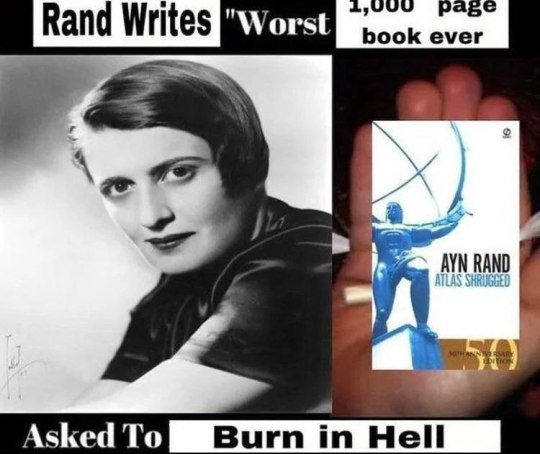
#ayn rand#atlas shrugged#burn in hell#rest in piss#rot in piss#bigot#hypocrite#ausgov#politas#auspol#tasgov#taspol#australia#fuck neoliberals#neoliberal capitalism#anthony albanese#albanese government#books and reading#comic books#books & libraries#bookstagram#books#book quotes#bookblr#booklr#book#class war#literature#weirdos#weirdo
70 notes
·
View notes
Text
LOST reading list
a list of books read by characters in lost for you to enjoy (or not). this isn't every book referenced in lost. for all that and more, see the "literary works" page on lostpedia, where im getting my info
no, my criteria for this list is that it's been read by a lost character. i'll tell you who (you'll see sawyers name a lot), and i'll add if it's somebody's fave book. this list will not include things like the bible or the qur'an or historical texts, as that while that can technically be recreational reading (it seems to be for ben), i'd rather not
Alice's Adventures In Wonderland by Lewis Carroll (read by Jack)
Are You There God? It's Me Margaret by Judy Blume (read by Sawyer)
A Brief History of Time by Stephan Hawking (read by Ben)
The Brothers Karamazov by Fyodor Dostoevsky (read by Ben)
Caravan of Dreams by Idries Shah (read by Ben)
Carrie by Stephen King (Read by Juliet, Ben and various other Others. This is Juliet's favourite book)
The Chosen by Chaim Potok (read by Sawyer)
Dark Horse by Tami Hoag (read by Jack)
The Dark Tower I: The Gunslinger by Stephen King (read by Ben)
Dirty Work by Stuart Woods (read by Jack)
Everything That Rises Must Converge by Flannery O'Connor (read by Jacob)
Evil Under The Sun by Agatha Christie (read by Sawyer)
Fahrenheit 451 by Ray Bradbury (read by Ben)
Flowers for Algernon by Daniel Keyes (read by Ben)
The Fountainhead by Ayn Rand (read by Sawyer)
Harry Potter and the Prisoner of Azkaban by JK Rowling (read by Jack)
Haroun and the Sea of Stories by Salmon Rushdie (read by Desmond)
Hotel by Arthur Hailey (read by Ben)
The Invention of Morel by Adolfo Bioy Casares (read by Sawyer)
Lancelot by Walker Percy (read by Sawyer)
Laughter in the Dark by Vladimir Nabokov (read by Hurley)
Notes from Underground by Fyodor Dostoevsky (read by Ilana)
The Oath by John Lescroart (read by Ben)
Of Mice and Men by John Steinbeck (read by Sawyer. This is Sawyer's favourite book and author)
Roots by Alex Haley (read by Ben)
A Separate Reality by Carlos Castaneda (read by Ben)
The Sheltering Shy by Paul Bowles (read by Ben)
Ulysses by James Joyce (read by Ben)
Valhalla Rising by Clive Cussler (read by Ben and Jack)
VALIS by Philip K. Dick (read by Ben)
Watership Down by Richard Adams (read by Boone and Sawyer)
A Wrinkle In Time by Madeleine L'Engle (read by Sawyer)
Every work by Charles Dickens other than Our Mutual Friend (read by Desmond. This is his favourite author)
I encourage you to speculate on the character implications put forth by these reading choices. This can raise such questions as: Jack is a Harry Potter fan? What is Desmond's favourite book by Charles Dickens? Boone can read??
Thank you for your time
#wow this really isn't light reading. here have some complex serious shit#sawyer and ben and jack are dominating the list. nerds#anyways im not exactly recommending these books#especially since it includes books by ayn rand and jk rowling [gags]#and also i don't even know what most of these are#but it's neat to have it listed as trivia at least. and might be useful for character analysis#note that sawyer didnt choose most of his books#but everybody else chose their books#also at a certain point while making this list i was begging ben to stop reading
51 notes
·
View notes
Text
i habe so many books i want to read
#not sure where to start#i think ill reread anthem and then go from there#im not really knowledgeable on ayn rand's poltics#all i saw when i read anthem was someone traumatised by the soviet union#its a short read anyway#and i still have notes on it laying somewhere#then ill probably read castle#then the plague and then murakami#and from there aristotle and dante d.t.s.o.t.u.#and im not sure what ill read after that#im very particular about book sorting and order#i need the genres to blend into eachother or feel cohesive at the very least#im only putting the aristole and dante after murakami because i know a song called murakami that gives me the same feeling as the aristotle#and dante book#anyway im reorganizing our books downstairs tommorow#its an absolute mess#you can find NOTHING there#just based on instinct#which is cool but some order would be nice#okay ill stop
20 notes
·
View notes
Text
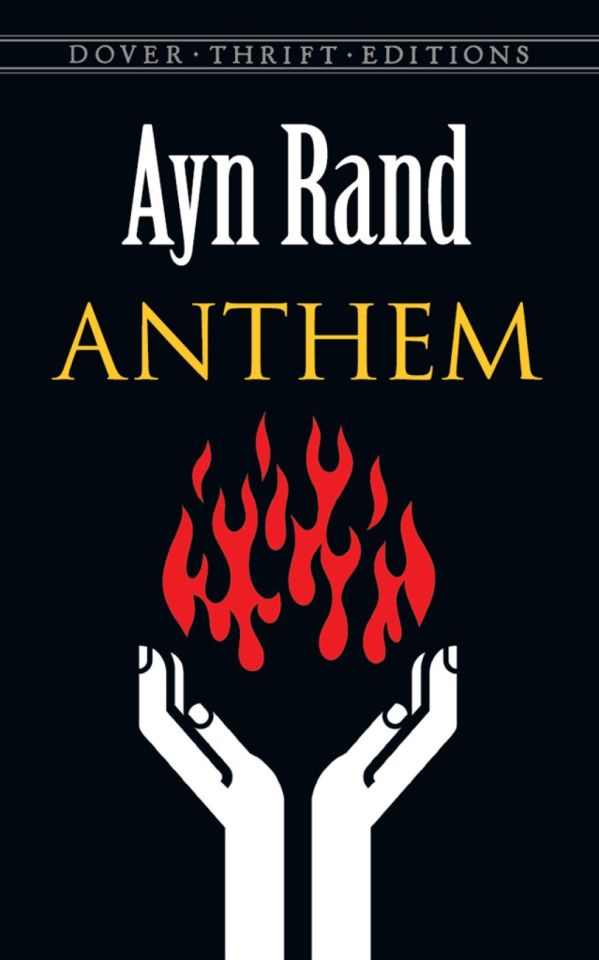
34 notes
·
View notes
Text
all the books I read in march 2024
1) “Atlas Shrugged” by Ayn Rand*
2) “The Do-Over” by Lynn Painter
3) “Ash House” by Angharad Walker
4) “The Prince and the Pauper” by Mark Twain
5) “Jane Against the World: Roe V. Wade and the Fight for Reproductive Rights” by Karen Blumenthal - ❤️
6) “The Ghosts of Rose Hill” by R. M. Romeo
7) “Scattered Showers: Nine Beautiful Short Stories” by Rainbow Rowell - ❤️
8) “The Metamorphosis” by Franz Kafka - ❤️
9) “Salt to the Sea” by Ruta Sepetys - ❤️
10) “The Address Book: What Street Addresses Reveal About Identity, Race, Wealth, and Power” by Deirdre Mask - ❤️
11) “The Ghost of Midnight Lake” by Lucy Strange
12) “Again, But Better: A Novel” by Christine Riccio - ❤️
13) “Emma” by Jane Austen - ❤️
14) “The Shame” by Makenna Goodman - ❤️
15) “Can We Talk About Israel? A Guide for the Curious, Confused, and Conflicted” by Daniel Sokatch - ❤️
16) “The Help” by Kathryn Stockett - ❤️
17) “Far from the Tree” by Robin Benway - ❤️
18) “The Lost Property Office” by James R. Hannibal
19) “A Little Princess” by Frances Hodgson Burnett - ❤️
20) “Instant Karma” by Marissa Meyer - ❤️
21) “Once Upon a Broken Heart” trilogy by Stephanie Garber - ❤️
22) “Rosehead” by Ksenia Anske
*For Atlas Shrugged, I did enjoy reading it as a book but I didn’t agree with its values; with what the author (Ayn Rand) was trying to convey with her philosophy of objectivism. I did enjoy reading Anthem by her, but maybe I was too young to fully comprehend the intention of the story. I will say though that although I believe being selfish is good for one’s mental health, I do think there should be a limit to it. There’s such a thing as being too selfish (or maybe that’s just me). The type of people (aka Donald Trump) that like “Atlas Shrugged” probably says something about the book itself. But that could also just be me. In summary, this book made me think a lot of things and I would recommend trying it out just as a book, but I also wouldn’t recommend it because of what’s inside the book. Two very contradictory statements but take it as you will.
ALSO IF YOU WANT TO ASK ME WHY I GAVE A BOOK HEARTS OR WHY I DIDN’T DON’T BE AFRAID TO ASK SORRY FOR THE ALL CAPS
#books#books and reading#book blog#bookworm#book review#march 2024#book-buni#bookblr#ruta sepetys#salt to the sea#the metamorphosis#franz kafka#the shame#makenna goodman#the help#jane austen#atlas shrugged#ayn rand
7 notes
·
View notes
Text
This is the story of a man who said that he would stop the motor of the world and did. Was he a destroyer or the greatest of liberators?
Why did he have to fight his battle, not against his enemies, but against those who needed him most, and his hardest battle against the woman he loved? What is the world’s motor — and the motive power of every man? You will know the answer to these questions when you discover the reason behind the baffling events that play havoc with the lives of the characters in this story.
Tremendous in its scope, this novel presents an astounding panorama of human life — from the productive genius who becomes a worthless playboy — to the great steel industrialist who does not know that he is working for his own destruction — to the philosopher who becomes a pirate — to the composer who gives up his career on the night of his triumph — to the woman who runs a transcontinental railroad — to the lowest track worker in her Terminal tunnels.
You must be prepared, when you read this novel, to check every premise at the root of your convictions.
This is a mystery story, not about the murder — and rebirth — of man’s spirit. It is a philosophical revolution, told in the form of an action thriller of violent events, a ruthlessly brilliant plot structure and an irresistible suspense. Do you say this is impossible? Well, that is the first of your premises to check.
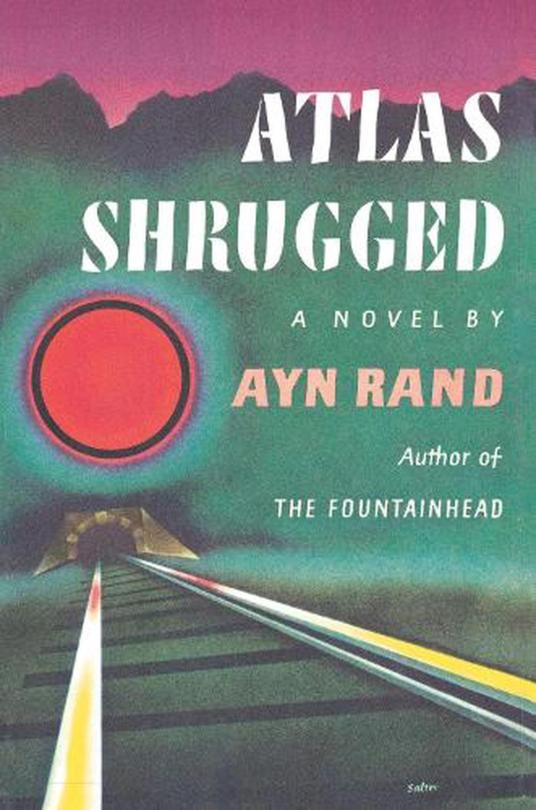

6 notes
·
View notes
Text
You’re much worse than a bitch. You’re a saint.
The Fountainhead by Ayn Rand
13 notes
·
View notes
Text

🤮🤮🤮
#thrifting#shiftythrifting#submission#bad content thanks submitter#books#ayn rand#🤮#finally some shitty thrifting
135 notes
·
View notes
Text
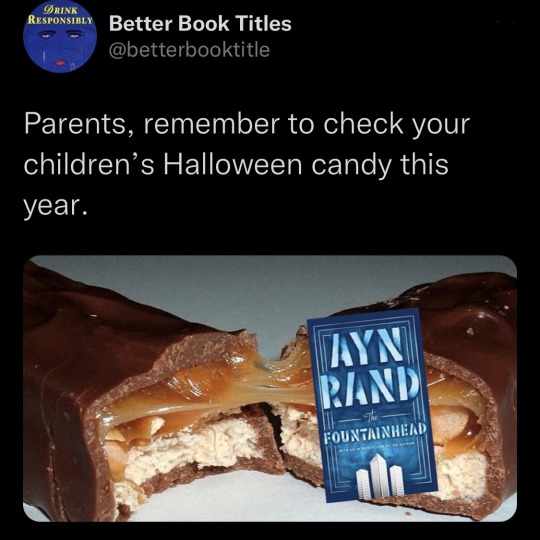
96 notes
·
View notes
Text

It was the greatest feeling of life: not to believe, but to know.
© Ayn Rand 《Atlas Shrugged》
12 notes
·
View notes
Text
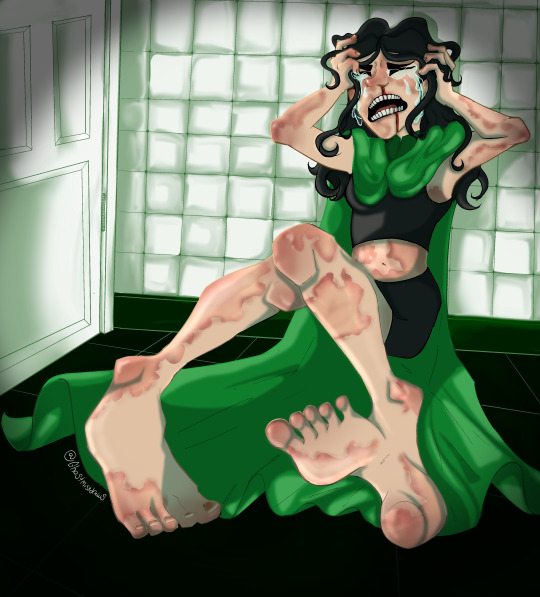
She's so immoral but I feel for her yk?
anyways just finished Thunderhead, brb screaming. I need to read The Toll NOW
#arc of a scythe#scythe#scythe rand#scythe ayn rand#arc of a scythe fanart#thunderhead#neal shusterman#aoas#ghostsposts#I ACTUALLY DREW FEET#AND THEY LOOK GOOD???#AND PERSPECTIVE??#shit man this was so fucking hard to figure out how to do#there was so many things I'm bad at but I just did it and oh my gods#i always roll my eyes when artists say to just jump in and do it#but shit man it actually works#ANYWAYS READ ARC OF A SCYTHE I BEG#STOP SLEEPING ON THESE BOOKS#much more aoas content coming bc i am obsessed
14 notes
·
View notes
Text
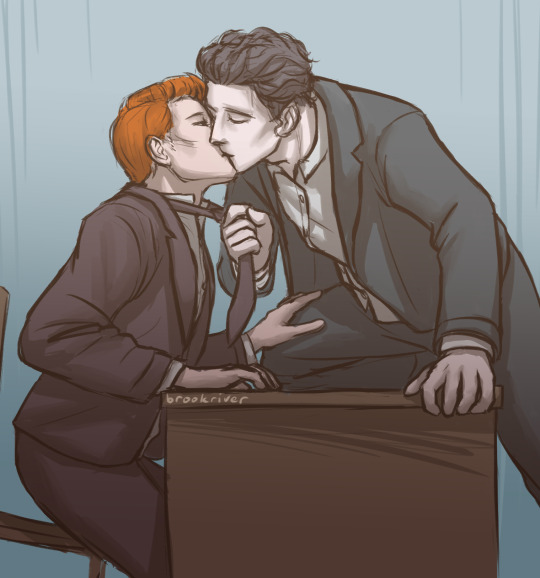
started reading The Fountainhead as an intellectual exercise, and am rapidly losing sentience as I progress
#ayn rand#the fountainhead#objectivism#my art#howard roark#peter keating#this book is a horrific glimpse into a hollow life of self-denial and repression packaged and sold as defiance#the best moment of the book so far has been roark lying on his back in the grass just feeling the soil pressing against his skin#a single moment of this man actually feeling alive and in his own flesh#and then the next chapter happens#and you watch him be swallowed by the monster that ayn rand thought of as perfection#ok also#gay gay homosexual gay#brookriver art
24 notes
·
View notes
Text
one of the major features of oppressive pedagogy, and of oppressive societies in general, is the use of history as a weapon to divide, dehumanize, justify, etc. the ruling class does this, right now the republican party is doing this by censoring school curriculum that focuses on anything other than a narrow, jingoist interpretation of american history. the use of history as a weapon is the reason we do not learn history so much as we learn historical narratives. it is hard to learn about the past as a living thing and as complicated and contradictory and multifaceted because it is hard for us to face the present in the same manner. we often opt for simple narratives in our contemporary politics.
among the many regressive trends in so-called progressive spaces, alongside the prevalence of hierarchy reversal and an obsession with the performance of guilt and atonement, is the use of history as a weapon against solidarity. you've seen this.
one of the most popular examples is stephanie e. jones-rogers' book, they were her property, which complicates the historical narratives created around the slave economy that sought to minimize the participation of married white women, specifically. jones-rogers is not using history as a weapon, obviously, she is doing the important work historians also do and is up against a long history of convoluted pro-slavery propaganda, as well as the white patriarchal perspective in american scholarship about capital, politics, and the economy. but her book, instead of being treated like the valuable resource it is - not only for its historical analysis, not only for its narrative-busting, but for its revolutionary potential - the book is used as a cudgel against feminism, as a rebuttal against individual white women in left spaces, and as proof of the impossibility of interracial female solidarity. that's ridiculous and it's offensive
now that is black history month, we'll be inundated with stuff like this, as usual, and it will have the same purpose as always. but even worse, there will be discourse that regards history as a mere rhetorical prop, as fodder for self-serving internet personas. its so fucking miserable
#BHM discourse is legitimately hellish#like once upon a time it was lighthearted and fun but now it is honest to God people's sincere worldview#i always resolve to do black history reading during BHM because that is the point of this month. i remember once i asked my family what#they were reading for BHM and my sister acted like i asked her which of ayn rand's books she thought was the most marxist
26 notes
·
View notes
Note
Please shout out your fav author l, i need to know more good authors
Sorry anon I do not read
#answer#there are very very few books that have been able to keep my attention from cover to back#two that I can name off the top of my head is The Little Prince and Anthem#Anthem by Ayn Rand*#both stories left an everlasting impact on the way I view life
2 notes
·
View notes
Quote
They hate you because they realize they can neither corrupt you nor rule you.
Ayn Rand
29 notes
·
View notes